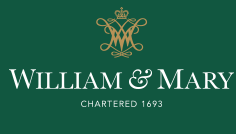Abstract
Recent policy changes in the New Zealand educational context have introduced privatization into the system through partnership schools. Parties on all sides of the issue use a framework of economic values consisting of efficiency, equity, and liberty to frame themselves and their opposition. This holistic case study uses interviews, observations, and field evidence to explore how partnership and public schools align themselves with these values, and how public discourse frames both types of schools. Cross analysis of the different voices revealed differences in constructions concerning innovation, how best to serve struggling learners, school funding, and school evaluation. These differences fuel the debate in the public sphere. The results from this study can help guide the construction of research questions and focus the inquiries of the U.S. charter school context to the underlying economic assumptions of different stakeholders, along with directing further research in the New Zealand context.
Recommended Citation
Olofson, Mark
(2018)
"Public/Private Partnership Schools in New Zealand: Justifications and Context,"
The William & Mary Educational Review: Vol. 5, Article 9.
Available at:
https://scholarworks.wm.edu/wmer/vol5/iss1/9

